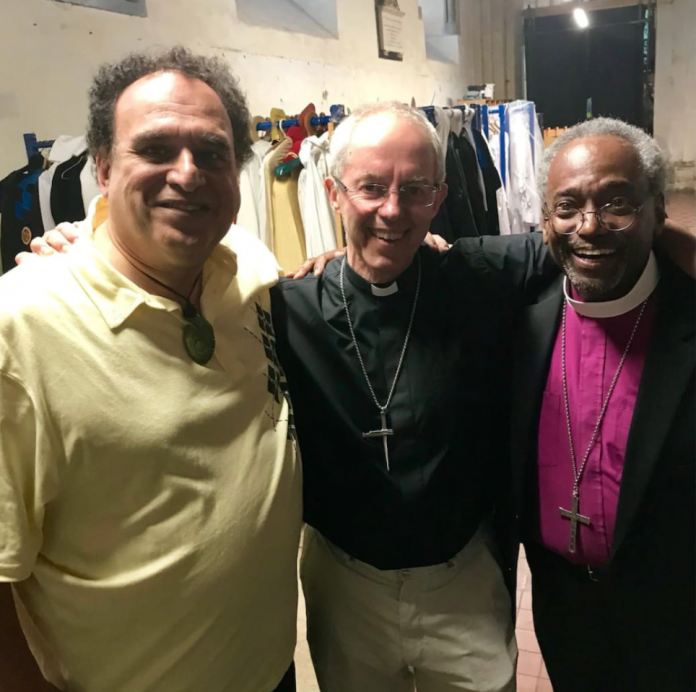Years ago, when I was living in a flat-share in London, a flatmate I barely knew accused me of being manipulative.
I can still remember the moment clearly, as I found the accusation so shocking. To my mind, it had come from nowhere and I couldn’t think of a reason why anyone would think that of me.
I say this now to illustrate how difficult it can be to recognise how we may be perceived by others, when we don’t recognise the behaviour in ourselves.
And I say it now, specifically, because I have been forced to eat significant helpings of humble pie in recent days following a scathing reaction to an article of mine, in which I considered whether it might be possible to forgive even those who have committed heinous offences, using as my example the disgraced church leader and former hero of mine Mike Pilavachi.
Having written the article and seen it published, I had congratulated myself on a job well done. “I’ve dealt with a difficult subject in a measured way,” I’d thought. “I’ve brought a fresh perspective to the issue of abusers, using the example of Marcus Mumford forgiving his own abuser to challenge others into radical forgiveness.”
Or so I’d thought.
But while some welcomed the article as “brave”, others were not so charitable.
And more significantly, at least two of those others were individuals who, unlike me, had a real investment in the Pilavachi case: David Gate, one of those to first speak out about his mistreatment by Mike; and Natalie Collins, another victim of abuse who set up a Twitter account to shine further light upon the scandal.
At which point, having initially not even realised who my first critic had been and why he seemed so cross with me, it really felt like I should reflect again upon what I had written.
And having done so, and also read and re-read the significant criticism I received, the penny finally dropped.
Here was little old me, with my relationship to the offender comprising no more than a short “hello” many years ago, telling someone who had been abused by that man that he ought to forgive him.
Because, even if that hadn’t been how I’d intended the article to be read, that was how it had been read by victims of abuse – both at Mike’s hands and at the hands of others.
Ms Collins queried whose side I was on – that of the abusers, or the abused. Which really was humbling.
Another of her descriptions was especially apt, I thought: that I had used Mike’s example for my own “Forgiveness Thought Experiment”. Which, really, when you think about it, as I dearly wish that I had, is simply not on.
Because what I had failed to see – somehow – as I embarked upon my task as a “grace warrior modelling the notion that no-one is beyond redemption” (another fair description) was that as someone not personally affected by the abuse, I had no right, at all, to seek to speak into it.
This is not the first time in my life, alas, that I have been forced to reflect with remorse upon something published under my name, of which at the time of writing I had felt quite proud.
Years ago – perhaps when I had a little more excuse, being only 23 – I included an unkind description, said by someone else, about a now-former friend because, in my mind, I had license to include it, given that: a) it had been someone else’s description; and b) I had spared no detail in the rest of the book (however shameful) about my own actions.
The fallout from that particular piece of naivety and severe misjudgment was the loss of a friendship, and a no doubt significant personal cost to that former friend.
But now, 15 years on, here I stand again, still learning – hopefully this time with a significant transforming effect on my future writings – about the power of the pen.
Yes for good, which as someone who writes primarily for a charity is thankfully something I am often able to enjoy, but also, sadly, for harm.
For a long time in my life, I was guided by the belief that one’s motive was of utmost importance, and that if you did something bad but hadn’t intended to, then you were somehow off the hook, or at least not quite as culpable.
But as I approach my fifth decade, I am slowly starting to realise that the consequences of one’s actions can sometimes render one’s “good” motives worthless.
I wrote this article with the aim, firstly, of apologising to those whom I have so carelessly hurt through my words – both in the most recent example and those long ago – and secondly with the hope that this apology might be of some help to others with a similar propensity for short-sightedness.
I clearly still have much to learn, and dearly hope this latest severe misjudgment will be my last. Though, alas, I rather doubt it.
